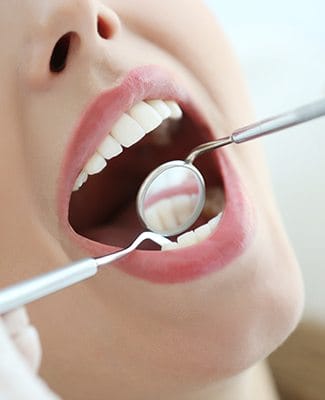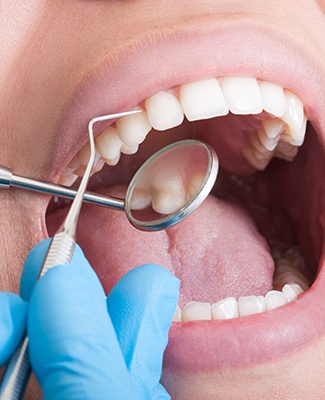Gum Disease Treatment – Federal Way, WA
Keeping Your Smile’s Home Healthy
When you brush your teeth, have you noticed that your gums are bleeding? Maybe they have become red or swollen? You may think that you are brushing too hard, but these could actually point to a larger issue – gum disease. This is an infection that develops in the gum tissue due to bacteria that are found in plaque and tartar accumulations.
While the early signs of it may not seem to be a big concern, if it is not quickly treated, it will cause the supporting structures of your teeth to deteriorate. Over time, this can lead to tooth loss and negatively impact your general health. To restore your oral health, Dr. Drew Beaty offers gum disease treatment in Federal Way. Continue reading or give us a call to learn more about this service!
Why Choose Drew Beaty, DDS Family and Cosmetic Dentistry for Gum Disease Treatment?
- Antibiotic Therapy to Promote Faster Healing
- Sedation Dentistry for Easier Treatment
- Calming and Comfortable Dental Environment
What is Gum Disease?

The CDC estimates that 50% of U.S. adults have gum disease. While common, it’s preventable with proper oral hygiene – brushing twice daily, flossing nightly, and visiting your dentist regularly. Unfortunately, many people don’t brush thoroughly or floss consistently, allowing bacteria to build up as plaque and tartar.
Gum disease has two stages: gingivitis and periodontitis. Gingivitis causes red, puffy, tender gums that may bleed during brushing, flossing, or eating crunchy foods. Without timely treatment, it can progress to periodontitis, where bacteria form pockets between teeth and gums. Advanced periodontitis can lead to tooth loss, irreversible damage, and increased risks for heart disease, respiratory infections, and other health issues.
Symptoms of Gum Disease

Recognizing gum disease symptoms is crucial for timely treatment. Contact our team if you notice:
Early detection ensures effective care, so schedule a visit if you experience these signs.
How Do We Treat Gum Disease?

At the first sign of the infection, it is important to schedule a visit with Dr. Beaty to prevent the issue from worsening. In addition to improving your home oral hygiene habits, he may suggest one of the following methods:
Antibiotic Treatment

After scaling and root planing, we may recommend using antibiotic pills to target bacteria in the pockets between your teeth and gums. These are designed to release medication gradually, helping eliminate harmful bacteria that are difficult to reach with standard cleaning methods. This treatment can be effective for about two weeks, significantly reducing the risk of reinfection after gum disease treatment.
Scaling and Root Planing

Scaling and root planing is a specialized treatment designed to fight gum disease by removing plaque and tartar from below the gum line. This deep-cleaning procedure not only restores gum health but also prevents further damage to teeth and bone. At Drew Beaty DDS, we take a gentle and thorough approach to help you regain a healthy, confident smile. Read more below to learn more about this smile-saving procedure and how it can help preserve your oral health.
Do I Need Scaling & Root Planing?

You may need scaling and root planing if you’ve been diagnosed with gum disease (periodontitis) or experience symptoms like bleeding gums, persistent bad breath, or gum recession. This procedure is excellent for removing harmful bacteria and setting your mouth on a path for better gum health!
At our Federal Way dental office, we’ll assess your condition and recommend scaling and root planing if it’s the best option for restoring your smile.
The Process of Scaling & Root Planing

Scaling and root planing is typically completed in two stages over the course of two appointments:
This safe and effective process has been used for countless patients to help them manage gum disease and begin the process of healing.
Aftercare Tips for Scaling & Root Planing

After scaling and root planing, your gums may feel tender, and slight sensitivity is normal. To aid healing:
